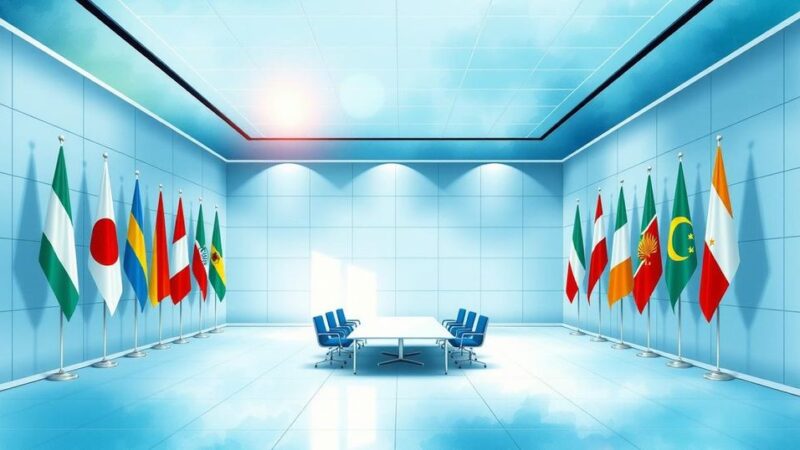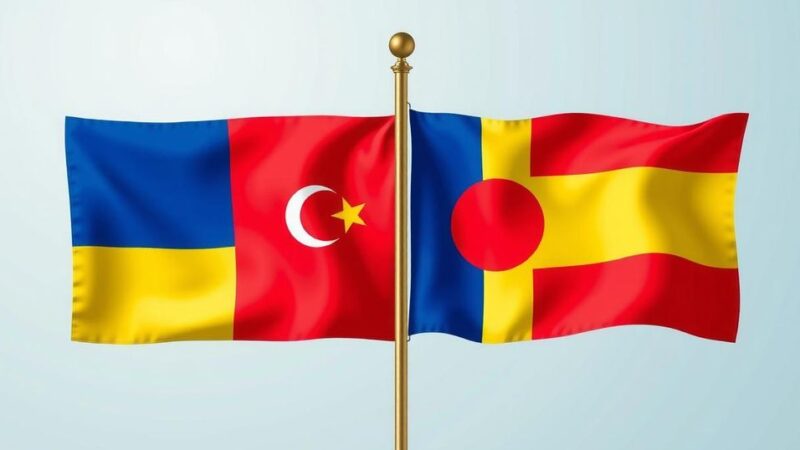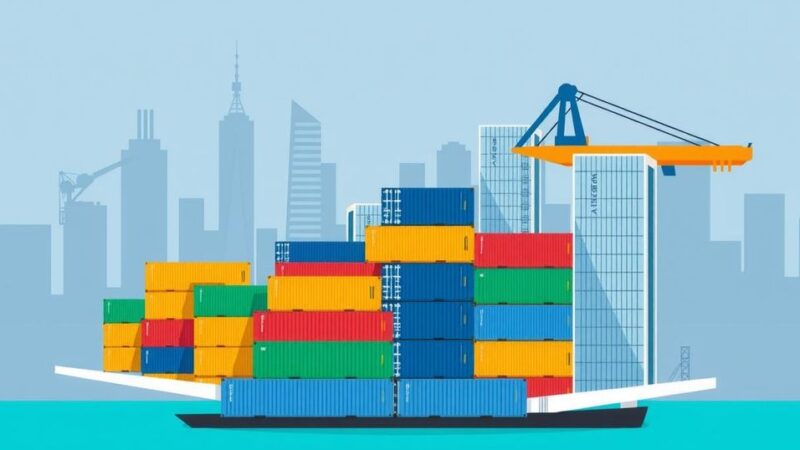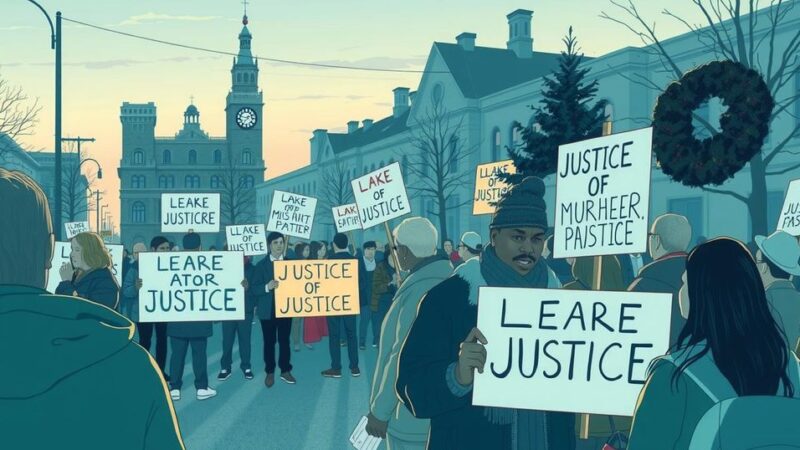The article discusses the evolving tensions between Ethiopia and Eritrea under Prime Minister Abiy Ahmed, highlighting the risks of renewed conflict fueled by ethnic fragmentation and the quest for power consolidation. It outlines the historical context of Ethiopia’s political fragmentation and the recent Tigray War, emphasizing the precarious regional stability and the dire need for international diplomatic engagement to prevent escalation.
Ethiopia’s current political climate unfolds a dangerous narrative characterized by escalating tensions, particularly surrounding the annexation rhetoric concerning Eritrea. The ghosts of historical ambitions, reminiscent of Emperor Haile Selassie’s forced annexation, surface under Prime Minister Abiy Ahmed’s regime. Observers must recognize the alarming trajectory leading Ethiopia and Eritrea toward renewed conflict, driven more by power consolidation than by nationalist fervor.
Prime Minister Abiy Ahmed, despite his image as a reformer, operates as an authoritarian figure facing profound challenges. Ethiopia’s long-standing ethnic divisions, which have intensified under his rule, threaten his political survival. Historically, Ethiopia has grappled with ethnic fragmentation, a situation that predates the current ethnic federalism narrative pushed by the Abiy administration. It is crucial to acknowledge that Ethiopia has been regionally divided along ethnic lines for much longer than modern political changes suggest.
A potential conflict with Eritrea could serve as a strategic maneuver for Abiy Ahmed to unify his fractured nation and quell internal dissent. The perceived need for a war serves as a tactical opportunity for Abiy, as he faces growing discontent among his Oromo supporters and ethnonationalist factions. Rather than stabilizing the country, this conflict may reflect Abiy’s desperation to maintain power amidst mounting pressures.
Abiy’s aspirations for reclaiming Eritrea’s Red Sea access are cloaked in a deeper reality: his regime’s legitimacy is eroding. His alignment with extremist nationalist factions underscores his fragile position and the lengths to which he may go to stifle dissent. However, this gamble risks overextending Ethiopia’s military capacity, already stretched thin across various conflict zones, and could exacerbate domestic and regional instability.
The potential for war between Ethiopia and Eritrea represents a dire concern for the Horn of Africa, where regional instability is already profound. Neighboring states such as Sudan and South Sudan grapple with their crises, while Somalia faces ongoing threats from extremist groups like al-Shabaab. Eritrea, though an internal stronghold ruled by autocracy, is left isolated amidst this turmoil, signaling the grave implications of escalating hostilities.
Eritrea’s regime, while rigidly authoritarian, has exhibited restraint in avoiding confrontation. Nevertheless, should tensions escalate, Eritrea’s military response could involve significant consequences beyond its borders. Thus, the international community must not underestimate the urgency of diplomatic involvement to avert catastrophe, as the ramifications of Abiy’s and Afewerki’s decisions may echo throughout the region.
The Tigray War illustrates the premeditated nature of conflict in the region, serving the interests of both Abiy and Afewerki while devastating the Tigrayan population. Their coordinated assault on the Tigray People’s Liberation Front (TPLF) aimed to eliminate a mutual political threat. This approach ultimately resulted in vast human suffering, emphasizing the necessity for international attention and intervention.
Despite the Pretoria peace agreement reached in late 2022, which ostensibly ended the Tigray siege, the underlying political instability remains unaddressed. The Tigray Defense Forces (TDF) remain a significant threat to Abiy’s rule, as the agreement failed to dismantle their existence or ambitions of overthrowing his regime. Instead, it left room for future conflict, as Abiy sought to consolidate power while fomenting division between the Tigrayans and Eritreans.
As Eritrea’s leader Isaias Afewerki maneuvers to maintain control, his collaborative actions with Abiy reflect a personal motive rather than a nationalistic ethos. The repercussions of the war for Eritrea manifest in widespread disillusionment, posing a real question about the future of Eritrean nationalism under his autocratic rule.
The international community’s engagement is vital as the tension between Ethiopia and Eritrea escalates. Abiy Ahmed and Isaias Afewerki’s willingness to pursue risky geopolitical strategies highlights their commitment to power preservation, potentially sacrificing Eritrean lives and sovereignty. The prospect of open conflict raises critical concerns regarding the fate of both nations in an increasingly unstable regional landscape.
The article elucidates the precarious situation surrounding Ethiopia and Eritrea, highlighting the profound implications of a potential conflict. It is evident that Prime Minister Abiy Ahmed’s authoritarian approach and his need to consolidate power amidst ethnic fragmentation may lead to disastrous consequences for both nations. The historical context of the Tigray War reveals the tactical alliances formed between Abiy and Eritrea’s Isaias Afewerki, further complicating regional dynamics. Urgent and effective diplomatic engagement is essential to avert impending catastrophe and foster stability in the Horn of Africa.
Original Source: moderndiplomacy.eu






